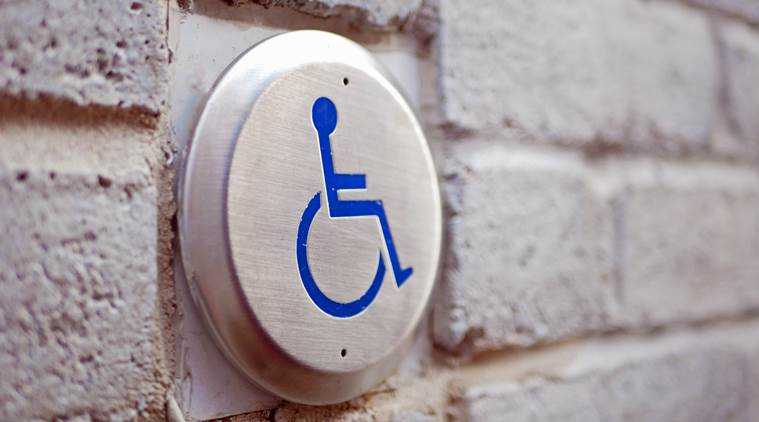 Official documents still continue to refer to the 1995 Persons with Disabilities Act for detailing their statutory obligations concerning persons with disabilities. (Photo: Getty/Thinkstock)
Official documents still continue to refer to the 1995 Persons with Disabilities Act for detailing their statutory obligations concerning persons with disabilities. (Photo: Getty/Thinkstock)
Written by Arman Ali
The aspirations of persons with disabilities in Union Budget 2020 were once again shattered with the Finance Minister announcing a meagre amount of Rs 9500 crore for senior citizens and persons with disabilities. The charity approach toward persons with disabilities can be still seen with them featuring under the care group of the development agenda and not under the aspirational group. This in itself sets persons with disabilities a step backwards in the line of inclusion.
It is unfortunate that the official documents still continue to refer to the 1995 Persons with Disabilities Act for detailing their statutory obligations concerning persons with disabilities. The faulty policy-making blatantly ignores the newly enacted Rights of Persons with Disabilities Act, 2016 and diverges from the social approach towards disability adopted under the new Act. The budget allocates around Rs 251 crore towards the implementation of the 1995 Act, which only covered seven disabilities, and not 21 as mentioned under the new Act. A National Fund has been constituted to secure finances towards proper implementation of the Act of 2016, but the lack of budgetary allocations around it have rendered it meaningless.
The Accessible India Campaign (AIC) which is one of the flagship programmes for accessibility does not find any mention in the Budget. Although the AIC was successful more on the level of creating a noise around accessibility, its vision was not translated on the ground due to lack of accountability framework and transparency. While hopes were pinned on its better implementation, lack of a financial framework has made it defunct.
India has the largest concentration of persons with disabilities who face multiple vulnerabilities and deprivations as the majority population continue to live in poverty. Accounting for the additional costs of disability increases poverty at both the extensive and intensive margin as the poverty rate amongst households with disabled member’s increases from 18 per cent to 34 per cent. Poor households with disabled members fall seven per cent below the poverty line on average when the cost of disability is ignored. Accounting for the same can reduce this to three per cent. The Budget 2020-2021 has failed to take this into account. It continues to impose additional constraints through Goods and Service Tax (GST) on aids and appliances used by persons with disabilities, and there has been no tax exemption for them. Such measures will continue to impose more costs on the lives of disabled persons.
Accessibility to the physical, social, economic and cultural environment, to health and education and to information and communication is important in enabling persons with disabilities to fully enjoy all human rights and fundamental freedoms. Research and promotion of universal design in products and services is important to ensure accessibility requirements of persons with disabilities. And the budget document reveals that no allocation of funds has been made for research on disability-related technology and products and neither for establishment of colleges for hearing impaired. Even the National Institute for Inclusive and Universal Design has seen a mere allocation of Rs 1 lakh.
The Rehabilitation Council of India, which is responsible for creating experts to work with persons with disabilities. has seen a token increment of Rs 5.50 crore from that of Rs 5 crore from last year.
Therefore, some recommendations that can be suggested in the hope that the concerns of persons with disabilities are included henceforth. For instance, the procedure to avail customs duty relaxation/exemption on the goods for persons with disabilities should be linked with self-declaration to mitigate hardships caused in availing such exemptions/relaxations. Persons with disabilities should be given a 0.5 per cent benefit in interest similar to that given to senior citizens on account of the rising cost of living and increasing disability-related costs and should not be denied health and life insurance.
Proper funds should be allocated for the implementation of the Rights of Persons with Disabilities Act, 2016. GST should be completely removed on goods used by persons with disabilities as it imposes high cost on products. The income tax ceiling for people with disabilities and those with dependents with disabilities should be increased to Rs 5 lakh. Increase in 80U exemption from Rs 75,000 for people with less than 75% disabilities and Rs 1,25,000 for people with over 75% disabilities to Rs 1,50,000 and Rs 3,00,000 respectively. Increase in deduction on 80D from Rs 50,000 per dependent to Rs 1,00,000 per dependent. A database of taxpayers availing 80U deductions must be maintained. This will throw light on the number of taxpayers who have a Disability. A deduction of up to Rs 40,000 is allowed for the treatment of specified ailments such as thalassemia. This should be increased to the actual expenses or at least Rs 1 lakh (For example, a thalassemia major patient can spend up to Rs 1-2 Lakh pa). The list must be updated to align with the RPWD Act and ailments such as multiple sclerosis must be also recognised for such exemptions.
‘Sabka Saath Sabka Vikas’ can only be a reality when the government realises that “sab” includes people with different disabilities at different stages of their lives and their ‘vikas’ becomes imperative to the overall health of the Indian economy.
The writer is an Executive Director at NCPEDP. NCPEDP is the country’s premier cross-disability, not-for-profit organisation working as an interface between Government, Industry, International Agencies and the Voluntary Sector towards empowerment of persons with disabilities.